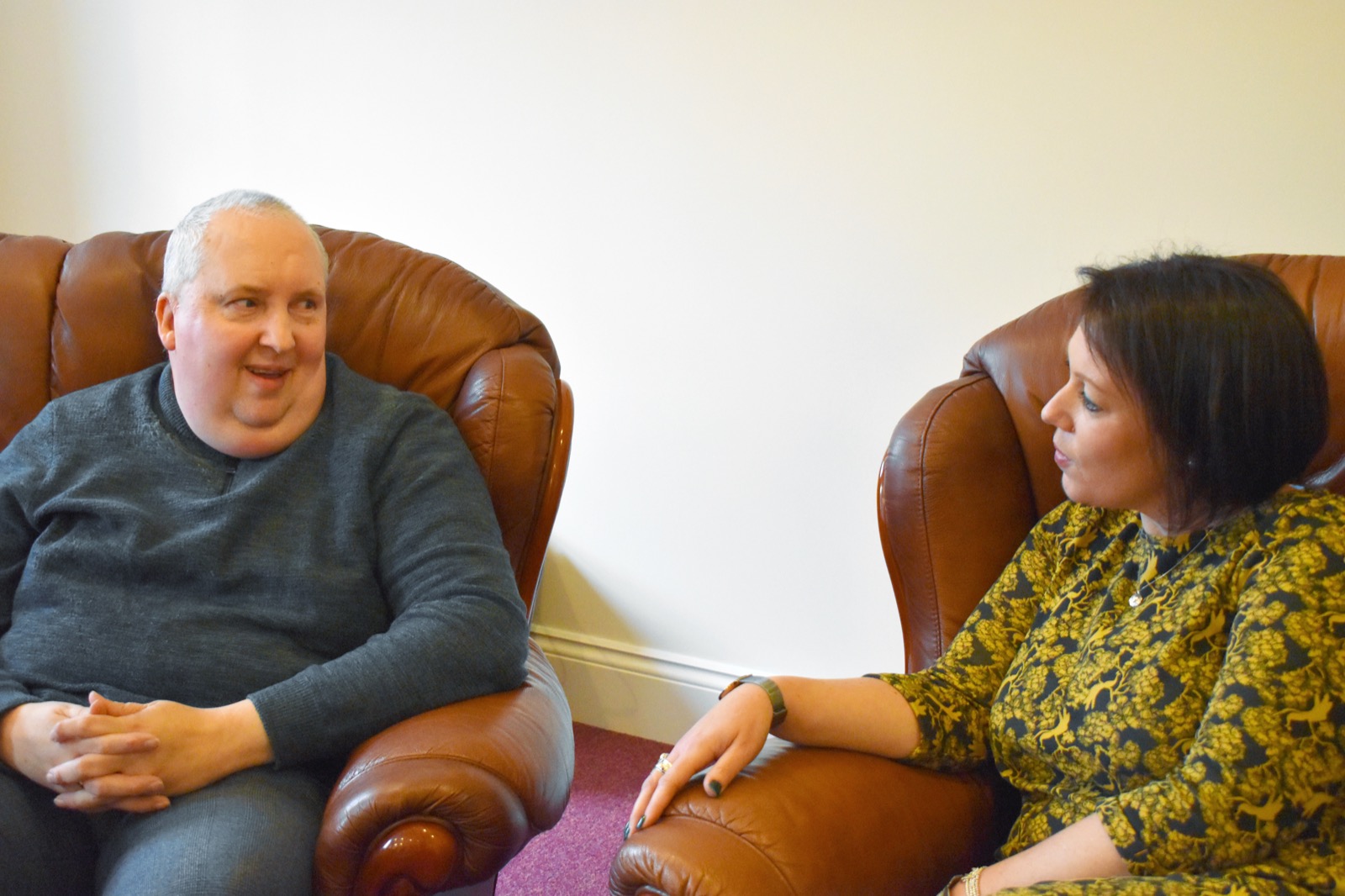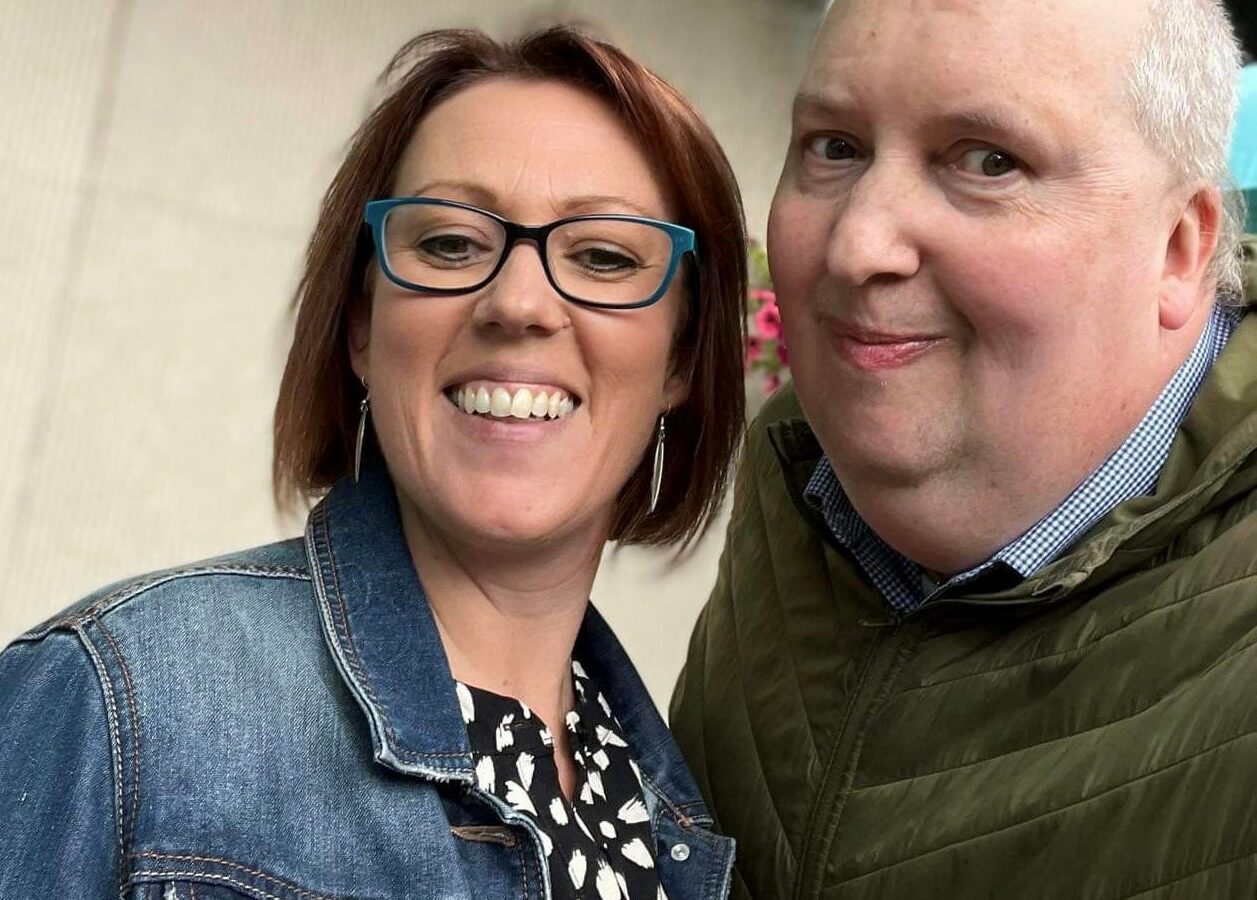People with learning disabilities are filling roles of power, working alongside colleagues as equals, under the equal leadership model. This is pioneered at Thera, a group of companies that supports adults with a learning disability in England, Scotland and Wales.
Andrew Bright and Sara Danby work together as group lead directors.
Bright came to Thera Trust in 2007 as a service quality director. He uses his first-hand experience of having a learning disability to monitor the quality of support at his local Thera organisation.
His roles since then have included helping set up Thera (Scotland) and working as a learning and development consultant. Recently, he was co-head of development working alongside a colleague who does not have a learning disability.
Sara Danby started in 1998 as an assistant support worker, progressing through various operational support and management roles.
She was promoted to lead director of The Quality Company in 2014; this is a Thera group body that employs individuals with a learning disability as quality assessors to check and report on the quality of support.
Tell us a bit about your work
Sara Danby: Part of our role is to mentor and coach our service quality directors and their executive assistants, finding areas to improve and enabling them to develop professionally.
We actively work with Thera companies to promote membership; this gives the people we support an opportunity to have a greater say in how the one for their area is run. We are able to provide a quality and involvement focus to Thera’s strategy as well as contribute to external work.
Andrew Bright: Co-leadership is in our core beliefs. We’re dedicated to ensuring that people with a disability are in positions of leadership.
The value of the dual perception that comes from having people with a learning disability in key positions is great. With both a personal viewpoint and experience from myself and an operational viewpoint from Sara, we’ve been able to gain a wider perspective – there’s magic there.
What is a typical week like?
AB: At the start, we catch up on Microsoft Teams to discuss the week ahead. We decide who is taking the lead on different work streams, and plan in time to update each other on what we’re doing. We meet as needed to work on any joint responses to pieces of work or correspondence.
An important part of the week is mentoring the service quality directors and supporting their executive assistants. We also support the chairperson, managing director and service quality director to encourage good working practices.
SD: Before meetings, we normally prepare via Teams. We attend a lot of strategy and senior leader meetings together – catching up afterwards to debrief, discuss and plan any actions is really important. We consider both our joint and separate views on subjects and debate as needed. This helps us understand how the other is feeling and ensure both our voices are heard equally.
AB: We attend external meetings together. As well as the Learning Disability England conference, we have been involved in the National Confidential Enquiry into Patient Outcome and Death – a study into managing acute illnesses in people with a learning disability.
This follows our experience in the RESTORE2 Mini project, which aims to identify soft signs of health deterioration and get support. I’ve written about this in Community Living (summer 2023).
SD: Once a month, we spend a day together to map what we are doing and where we want to be. The combination of planning and free thinking helps us to be creative together – this is far more effective when you’re together in person.
Are there difficulties?
SD: At the start, we focused on getting to know each other. There is always some nervousness that comes with a new position, and we were going into a partnership wondering what the other thought. It’s why we put such a strong focus on relationship building.
We took some advice I received “to invest in a relationship with each other before everything else took over”. I went to visit Andrew and we spent time getting to know each other, going on walks and having coffee catch-ups.
AB: I followed advice from a mentor who told me that this is not a management role but mentoring others and to “take off your management hat”. I was struggling with switching from my role as manager to my role as a mentor and it has taken time to adapt.
SD: I have worked collaboratively but never in a equal role and found the partnership could be intense and more tiring than previous roles. While these were a challenge at the start, all are becoming easier with time and patience.
AB: The beliefs of others can be hard to change. While in Thera there is knowledge of how capable I am, people outside can view Sara as the real lead or look down on the role. In some cases, there can be passive disrespect from a person without a learning disability that can be overlooked. It’s a frustrating barrier.
SD: Sometimes, I miss something from Andrew that I feel I should have picked up on, but we have our ways of overcoming this. We always present a united front.
We catch up before a meeting to make sure we both know what is going to be discussed and go over documents we need to read, and we come up with a plan of action.
AB: We know our talents – this is not a tokenistic role.

What are the benefits?
AB: It has created progression opportunities for people with a learning disability inside the company and shows that Thera is willing to invest in them – this is a role of both equal hours and pay.
For those outside Thera, it shows the difference that having someone with a learning disability can make and how their experiences bring such richness and diversity to a company in leadership roles.
What have you enjoyed and what are you looking forward to?
AB: We’ve loved the time spent together; karaoke in the car and meals out have been highlights in building our relationship.
It was amazing speaking at the Learning Disability England Conference earlier this year alongside social enterprise Bemix.
We are working on a development programme for the service quality directors and are finding new ways to develop company membership.
SD: We are looking forward to more opportunities to inspire people with a learning disability to push for equal leadership positions. n
Johann Kyriacou is communications assistant at Thera Trust





